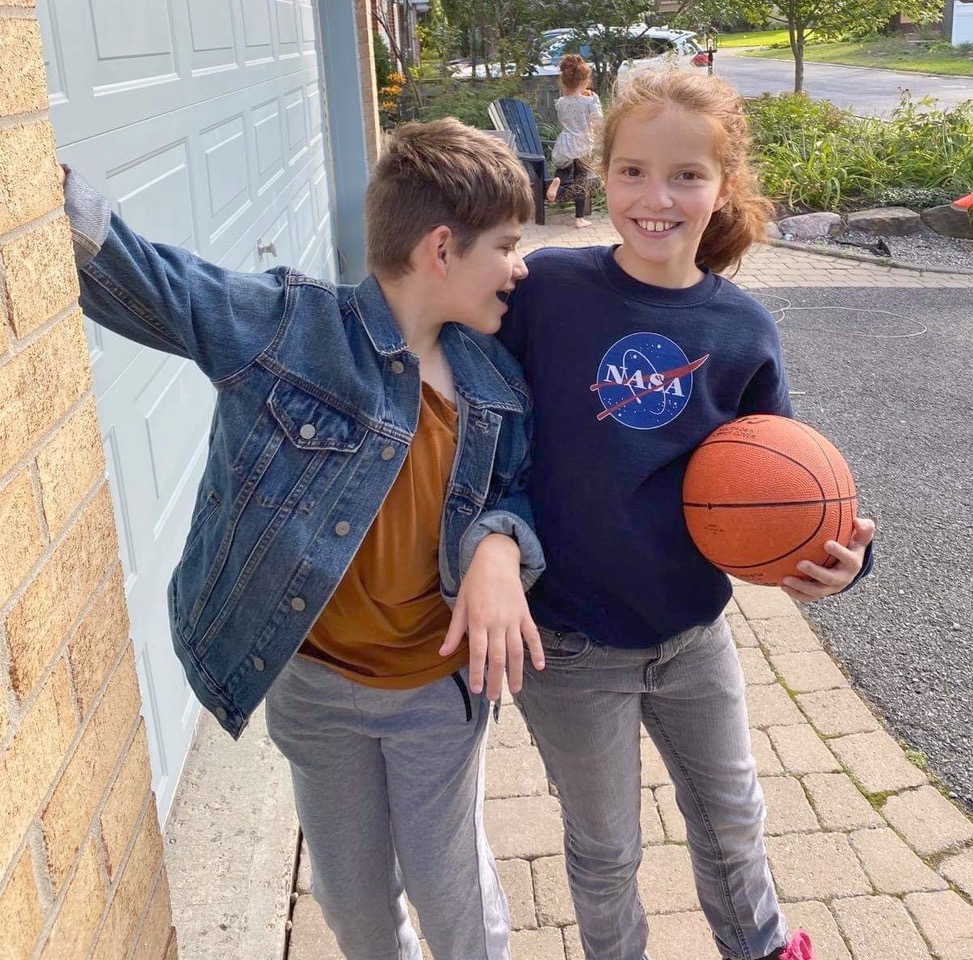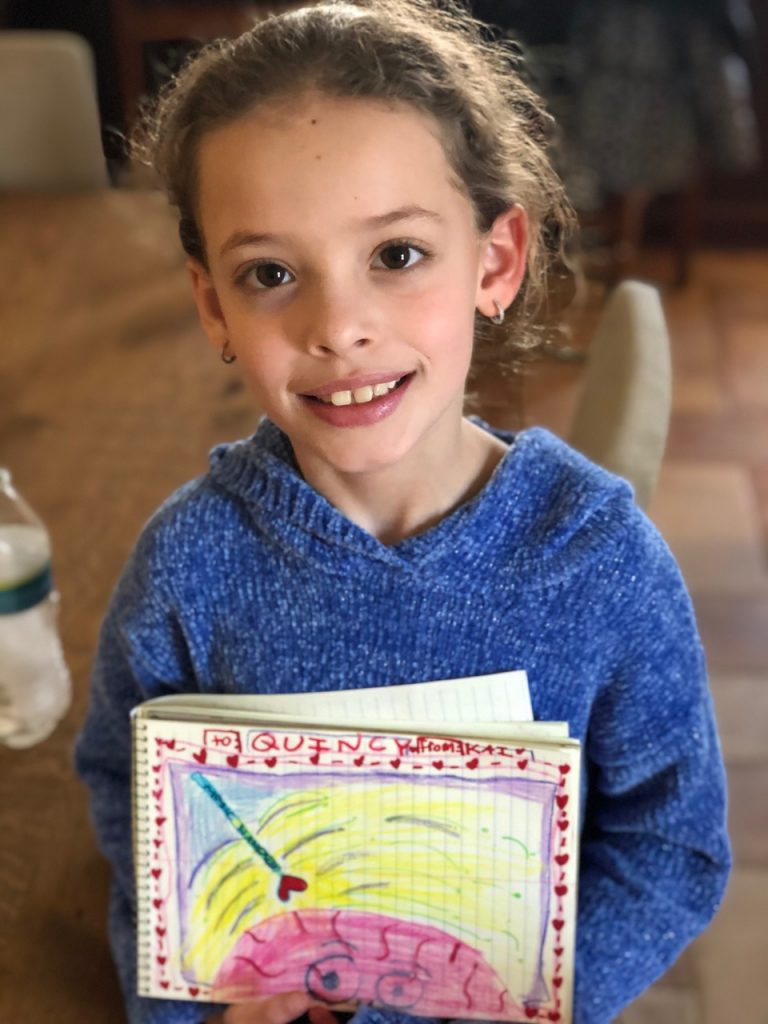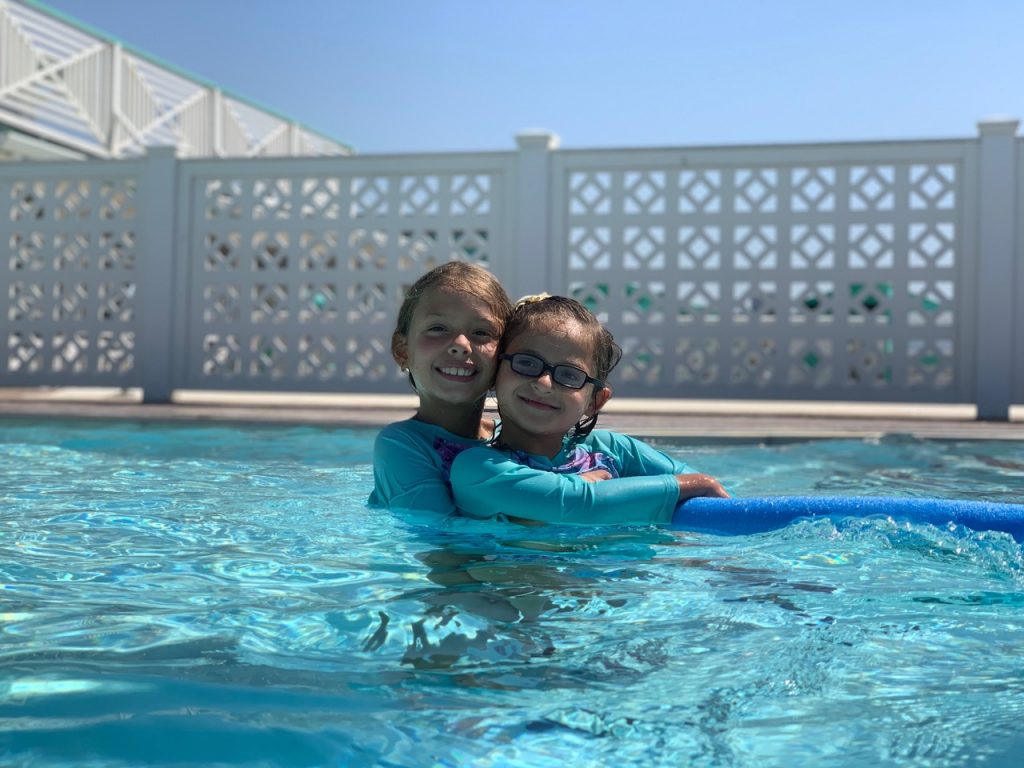Introducing FAST Tracking Research with Na’ama and Kai
FAST, the Foundation for Angelman Syndrome Therapeutics, is pleased to introduce an educational video series, FAST Tracking Research, with Na'ama and Kai. This series will be led by two siblings living with loved ones with Angelman syndrome, Na'ama Uzan and Kai Weisse. FAST Tracking Research is designed to help educate individuals on the science behind Angelman syndrome with information that’s easy-to-understand, yet impactful.
Na'ama's parents, David and Ru Uzan, encouraged Na'ama to find a passion project ahead of her upcoming Bat Mitzvah. While there are so many notable non-profit organizations and opportunities for Na'ama to give back to the community, she wanted to support a non-profit close to her heart. Na'ama selected FAST because of the work they're currently doing to find effective therapeutics for Angelman syndrome, a neurogenetic disorder that her brother Nadav lives with.

"I was four years old when I found out that my older brother, Nadav, had Angelman syndrome," said Na'ama. "I hope that FAST Tracking Research will be helpful for potential donors, families of people being diagnosed with Angelman syndrome, and those that interact with people with Angelman syndrome, such as classmates and friends. My goal is to educate people in a simple and fun way. If siblings or classmates understand Angelman syndrome better, they might feel more confident about interacting with individuals with Angelman syndrome.
"I want to teach others about Angelman syndrome because it's an important topic that has not only influenced my family, but thousands of other families around the world. I hope that more people will learn about Angelman syndrome and they will donate to support a cure, especially if they understand that we are so close to a cure.
“Angelman Syndrome revolves around a single gene – one gene that can influence someone’s life forever. You don’t realize how effective it is until you meet someone who doesn’t have it, but some of the things that seem invisible, can be the things that matter most.”
Na'ama is 11 years old and is quite familiar with raising awareness and funding research for FAST. By 2016, Na'ama had raised $100,000 for FAST through a lemonade stand and a desire to help her older brother Nadav. Na'ama challenged others to open their own stand through the AS Lemonade Stand Initiative, which became a Facebook and Twitter challenge. People from all over the world joined Na'ama's effort. Today, Na'ama has branched out to co-host a video series with a fellow Angelman sibling, Kai, who is eight years old.

Kai's mother, Allyson Berent-Weisse, is the chief science officer for the FAST Board of Directors and the chief operating officer of GeneTx Biotherapeutics, a subsidiary of FAST. Kai is the oldest of three children, and her sister, Quincy, lives with Angelman syndrome. Since Quincy's diagnosis, Kai has become quite interested in science. At just six years old, Kai unleashed her creativity to draw a simplified explanation of curing Angelman syndrome.
"I want to educate people about Angelman syndrome because the more they understand, the more they will help to find a cure," said Kai. "This video series allows me to express my creativity with Na’ama while helping to raise awareness for Angelman syndrome. Since I was four, I understood that Quincy was missing a gene, although I didn’t really know what a gene was. My mom explained it, but I know it is quite complicated. When I turned six, I drew a picture of how I understood a cure for Angelman syndrome. The picture included the brain of someone with Angelman syndrome and a magic wand – the wand was placing a gene into their brain and then this person was cured. The gene goes into the brain and travels into the neurons, or the cells of the brain, and gives people with Angelman syndrome what they are missing – a dream my family has for Quincy.
"I want to raise money for FAST – not only to help my sister Quincy, but to help all of the other families with living with Angelman syndrome. When I grow up, I hope that there will be a cure for Angelman syndrome and, if not, I will be busy finding one. I also want to be a plastic surgeon, as part of Operation Smile, where I can help kids and adults that are born with cleft lips and cleft palates, which often makes them not like to smile. I love to smile and I love Quincy’s smile, so specializing in this type of surgery will allow me to give more people the opportunity to smile. I want to encourage everyone to have the best life, just as I do for my sister Quincy."

Na'ama and Kai hope that by educating individuals on Angelman syndrome and the work that FAST is currently doing, they will raise awareness to support the research. FAST Tracking Research with Na'ama and Kai will be shared on FAST's social media channels. Those interested in contributing to Na’ama and Kai’s fundraiser, can make a financial gift toward curing Angelman syndrome, the dream of Na’ama and Kai, and so many others. To learn more about FAST, please visit cureangelman.org.